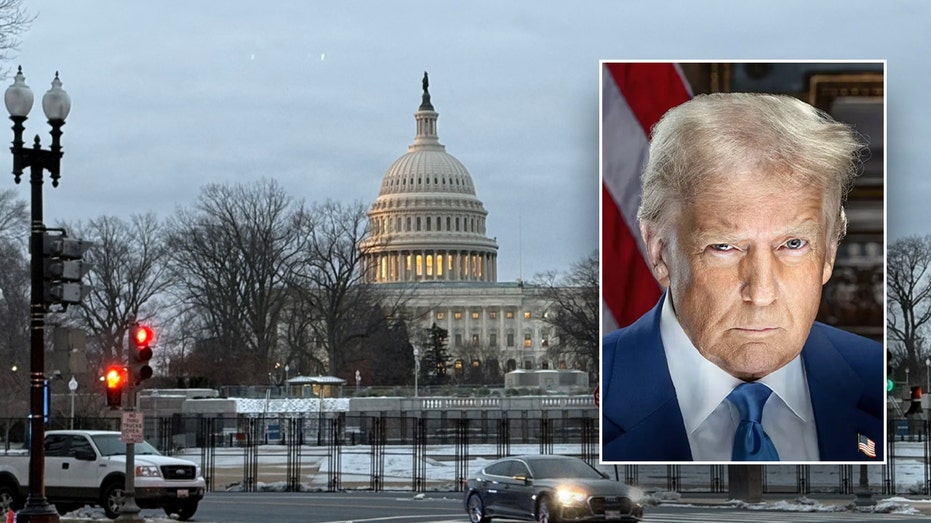House Republicans divided as Trump's comprehensive bill faces critical vote
Speaker Mike Johnson, R-La., has been hard at work this week meeting with as many factions within the House GOP as possible to quell concerns ahead of a chamber-wide vote on President Donald Trumps "big, beautiful bill."Managing a razor-thin House majority isnt easy in the best of times, but negotiating the vast tax-immigration-energy-defense-debt limit bill has revealed both old and new fractures within the Republican Conference.Fox News Digital took a look at what the key factions have been looking for.HOUSE FREEDOM CAUCUS HEADING TO WHITE HOUSE AFTER DELAY PLAY ON TRUMP'S 'BIG, BEAUTIFUL BILL'The House Freedom Caucus and their allies have been pushing the bill to go further on curbing Medicaids Affordable Care Act (ACA) expansion, and implementing work requirements for able-bodied Americans on the government healthcare program sooner than the current bills 2029 deadline.Theres broad consensus among Republicans on needing work requirements for able-bodied Americans on healthcare, but cutting too deeply into the Obamacare-era expanded population has some moderate GOP lawmakers worried.The conservatives have consistently argued that they are only seeking to reshuffle the program to make it more available for vulnerable people who truly need it, including low-income women and children.That same group has argued in favor of a total repeal of President Joe Bidens green energy tax credits in the Inflation Reduction Act (IRA) a push that has pitted them against Republicans whose districts have businesses that benefitted from those subsidies.DEMS WARN HOUSE REPUBLICANS WILL PAY PRICE AT BALLOT BOX FOR PASSING TRUMP'S 'BIG BEAUTIFUL BILL'Moderate Republicans in California, New York, and New Jersey have been taking a stand on raising the state and local tax (SALT) deduction cap.SALT deduction caps primarily benefit people living in high-cost-of-living areas like New York City, Los Angeles, and their surrounding suburbs.Republicans representing those areas have argued that raising the SALT deduction cap is an existential issue and that a failure to address it could cost the GOP the House majority in the 2026 midterms.Several of the Republicans vying for higher SALT deduction caps have pointed out that their victories are critical to the party retaining control of the House in 2024.SALT deduction caps did not exist before Trumps 2017 Tax Cuts and Jobs Act (TCJA), which notably instilled a $10,000 ceiling for married and single tax filers.That cap has been received positively by the majority of Republicans, however and those in lower-tax, GOP-controlled states have dismissed the push for a higher SALT deduction cap as an unearned reward for Democratic states with high-tax policies.Republicans in places like Tennessee and Missouri have argued it was their tax dollars subsidizing wealthier, blue-leaning areas tax breaks. Blue state Republicans, meanwhile, have contended that they send more tax dollars back to the federal government which in turn helps pay for lower-tax states.There is some overlap between Republicans looking for more modest cuts to the IRA and those seeking a higher SALT deduction cap but not completely.Republicans in swing districts in Arizona and Pennsylvania have argued that upending those tax credits now would harm businesses in their districts that had begun changing their operations already to conform to those new tax breaks.In March, 21 House Republicans signeda letter urging their colleaguesto preserve the green energy tax credit."Countless American companies are utilizing sector-wide energy tax credits many of which have enjoyed broad support in Congress to make major investments in domestic energy production and infrastructure for traditional and renewable energy sources alike," they wrote.But conservative fiscal hawks pushing for a total repealsaid in their own letter that the U.S.' growing green energy sector was the product of government handouts rather than genuine sustainable growth."Leaving IRA subsidies intact will actively undermine Americas return to energy dominance and national security," they said. "They are the result of government subsidies that distort the U.S. energy sector, displace reliable coal and natural gas and the domestic jobs they produce, and put the stability and independence of our electric grid in jeopardy."




